Most of the United States has a temperate climate, meaning extremes in temperature and precipitation aren’t too common. However, in some of our southern states, especially in the more tropical areas closer to the Gulf Coast, heavy rainstorms year-round are just a fact of life. This blog post examines the wettest US states and answers why they’re so wet.
If you don’t like the rain, you might want to look for drier locales, which also often have the added benefit of being warm year-round too! Our list uses data compiled from official NOAA climate data. See our US weather extremes page for more on the US’ wild weather.
The Wettest States in the United States ranked by rainfall annually
- Hawaii: 63.7 inches
- Louisiana: 60.1 inches
- Mississippi: 59.0 inches
- Alabama: 58.3 inches
- Florida: 54.5 inches
- Georgia: 50.7 inches
- South Carolina: 49.8 inches
- North Carolina: 48.6 inches
- Tennessee: 48.4 inches
- Arkansas: 48.3 inches

Why are these states so wet?
Most of these states are in near-tropical regions of the southern US (along the Gulf Coast). However, Hawaii’s location squarely in the tropics plays a big part in why they see so much rain.
Hawaii
Hawaii is the wettest US state, and its tropical climate is the primary reason for its high rainfall. Warm air and moisture from the ocean collide with the island’s mountainous terrain, causing heavy rain on their windward sides (the leeward side sees much less rainfall and is often where most Hawaiians live). This precipitation supports Hawaii’s lush rainforests and beautiful waterfalls.
Southeastern States
The rest of the wettest US states are located in the Southeast. These states share a humid subtropical climate characterized by long, hot summers and short, mild winters. The primary factors contributing to the wet conditions in these states are:
- The Gulf of Mexico: Warm, moist air from the Gulf of Mexico fuels heavy rainfall in the Southeast, particularly during summer.
- Atlantic Ocean: Coastal states like Florida, Georgia, South Carolina, and North Carolina receive additional moisture from the Atlantic Ocean.
- Thunderstorms: The southeastern states are prone to frequent thunderstorms, which produce heavy rainfall, especially in the summer.
- Tropical Storms and Hurricanes: The Gulf Coast and Atlantic Coast states are vulnerable to tropical storms and hurricanes. These weather systems can bring torrential rains and cause severe flooding.
Tennessee and Arkansas, the remaining two states on our list, are located in the south-central part of the country. While their climates are somewhat similar to those of the southeastern states, they receive slightly less rainfall. Tennessee and Arkansas are influenced by a mix of factors, including:
- Proximity to the Gulf of Mexico: Like their southeastern neighbors, Tennessee and Arkansas receive moisture from the Gulf of Mexico, resulting in wetter conditions.
- Terrain: Both states have varied terrain that can contribute to increased rainfall. In Tennessee, the Appalachian Mountains help to generate precipitation, while the Ozark Plateau in Arkansas can also enhance rainfall totals.
- Storm Systems: Tennessee and Arkansas are states where cold air from the north meets warm, moist air from the south. This clash of air masses can develop storm systems that bring heavy rainfall to the area.
Wrapping Up
Hawaii and the Southeastern states have unique climate characteristics that cause excessive rainfall. The Gulf Coast states see enhanced rain from summertime tropical activity, while Hawaii’s tropical climate is naturally humid and wet. However, except for more remote locations of the Hawaiian islands, this heavy rain is often limited to remote areas.
Our advice? Pack an umbrella if you plan to visit these wettest US states; you’ll be glad you did.
Experience the fascinating world of weather with the second edition of Weather Watch: An Introduction to America's Weather and Climate. This book doesn't just explain weather and climate concepts—it brings them to life.
Weather Watch is perfect for teenagers and adults who wish to deepen their understanding of the dynamic world of meteorology. Simplifying the complex, this book breaks down the science of weather into smaller, easily digestible concepts, allowing you to build on your knowledge with each chapter.
Here's what to expect:
- Detailed insights on clouds, pressure and wind, reading weather maps, hurricanes, and tropical storms
- Enlightening discussion on climate change
- Essential guidance on purchasing a weather station
- Critical information on severe weather and tornadoes
- Learning how to forecast the weather yourself
This second edition comes completely reformatted with over 30 pages of new content, including advanced weather map analysis and space weather. It's more visually appealing with additional illustrations and graphics. Each chapter now ends with handy links for more in-depth learning, and sprinkled throughout the book are captivating American weather events, serving as real-life illustrations of introduced concepts.





